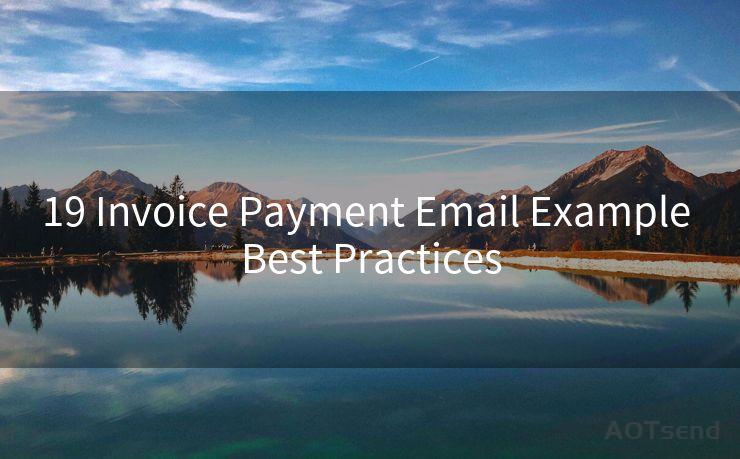19 Invoice Payment Email Example Best Practices




When it comes to invoice payment reminders, effectiveness and clarity are paramount. Here are 19 best practices for crafting the perfect invoice payment email, ensuring prompt and efficient payment.
1. Clear Subject Line
Start with a clear and concise subject line that immediately communicates the purpose of the email. For example, “Invoice Payment Reminder for Invoice #1234.”
2. Personalized Greeting
Always use the recipient’s name in the greeting to add a personal touch and grab their attention.
3. Invoice Details
Include all relevant invoice details such as invoice number, date, and total amount due. This provides a quick reference for the recipient.
4. Payment Deadline
Specify a clear payment deadline to avoid any confusion and encourage timely payment.
5. Payment Methods
Outline the accepted payment methods (credit card, bank transfer, etc.) and provide detailed instructions for each.
6. Direct Links
If possible, include a direct link to the online payment portal or invoice for easy access.

7. Polite Tone
Maintain a polite and respectful tone in the email to foster a positive relationship with the client.
8. Itemized Invoice
Attach or link to an itemized invoice that breaks down the charges, so the client can easily understand what they are paying for.
9. Contact Information
Provide your contact information in case the client has any questions or concerns about the invoice.
10. Thank You Note
Thank the client for their business and express appreciation for their prompt payment.
11. Avoid Jargon
Use plain language and avoid industry jargon that might confuse the client.
12. Call to Action
Include a clear call to action, such as “Please process the payment by the due date to avoid any late fees.”
13. Follow-Up Plan
Mention when and how you will follow up if payment is not received by the deadline.
14. Late Fees
Clearly state any late fees or penalties that may apply if payment is not made by the due date.
15. Confidentiality Statement
If necessary, include a confidentiality statement reminding the recipient to keep the invoice details private.
16. Mobile-Friendly Format
🔔🔔🔔
【AOTsend Email API】:AOTsend is a Managed Email Service for sending transactional emails. Support Email Types: reminders, authentication, confirmations, notifications, verification codes, invoices, password resets, account activations, billing statements, two-factor authentication (2FA), and one-time passwords (OTP) emails, etc. $0.28 per 1000 Emails. 99% Delivery, 98% Inbox Rate.
You might be interested in:
Why did we start the AOTsend project, Brand Story?
What is a Managed Email API, How it Works?
Best 25+ Email Marketing Platforms (Authority,Keywords&Traffic Comparison)
Best 24+ Email Marketing Service (Price, Pros&Cons Comparison)
Email APIs vs SMTP: How they Works, Any Difference?
Ensure the email is mobile-friendly, as many clients may check their emails on the go.
17. Use Templates Wisely
While templates can save time, customize them enough to maintain a personal touch and avoid a generic feel.
18. Testimonials or Reviews
If possible, include positive testimonials or reviews from other satisfied clients to build trust.
19. Follow-Up Emails
Plan to send follow-up emails at strategic intervals if payment is not received, maintaining a polite but persistent approach.
By following these best practices, you can increase the likelihood of timely invoice payments and maintain positive relationships with your clients. Remember, communication is key, and a clear, concise invoice payment email can go a long way in ensuring smooth business transactions.




Scan the QR code to access on your mobile device.
Copyright notice: This article is published by AotSend. Reproduction requires attribution.
Article Link:https://www.mailwot.com/p4763.html



